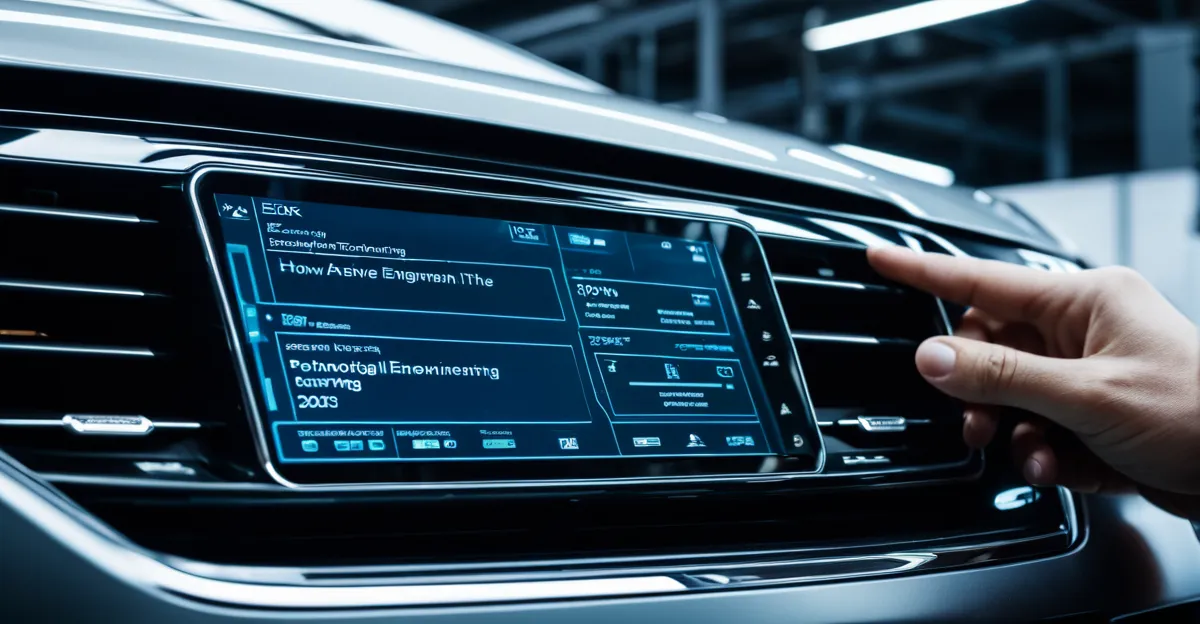Impact of Key Technological Innovations on UK Automotive Engineering
Technological advancements are reshaping the UK automotive sector with rapid strides in electric vehicles, autonomous technologies, and advanced manufacturing methods. The adoption of electric vehicles (EVs) is accelerating, driven by enhanced battery technologies and expanding charging infrastructure. This shift not only supports the UK’s commitment to lower emissions but also necessitates new design and engineering approaches tailored to EV-specific needs.
Autonomous vehicles represent another transformative force. The integration of sensors, machine learning, and real-time data processing provides vehicles with enhanced safety and efficiency. Progress in autonomous driving technologies within the UK has resulted in pilot projects and urban testing, positioning the sector at the forefront of innovation.
In the same genre : What Innovations are Transforming the Future of the UK’s Automotive Industry?
Advanced manufacturing, including AI-driven and digitalised processes, plays a vital role in streamlining production and design. These technologies enable higher precision, reduced waste, and faster iteration cycles. Digital twins and simulation software, for example, allow engineers to optimise vehicle components more effectively.
Together, these innovations enhance the UK’s competitive edge by fostering a dynamic ecosystem where electric vehicles, autonomous systems, and smart manufacturing converge, driving the next generation of automotive engineering forward.
Also to see : How Will Automation Transform the Future of the UK Automotive Industry?
Effects on Automotive Design, Production, and Sustainability
New materials and smart manufacturing techniques are revolutionising vehicle design in the UK automotive sector. Lightweight composites and high-strength alloys reduce vehicle weight, directly improving efficiency and performance. Smart manufacturing uses AI-driven robotics and digital twins to fine-tune design, allowing engineers to quickly test and refine components without physical prototypes.
Production efficiency has seen significant gains through Industry 4.0 technologies. Real-time data analytics and interconnected machinery streamline assembly lines, reducing downtime and minimising defects. This integration enhances precision while optimising resource use, aligning with sustainability goals.
Sustainable automotive engineering is at the heart of these advancements. Cutting emissions and adopting eco-friendly production methods respond to increasing regulatory pressure and consumer demand. For example, renewable energy integration in factories and circular economy principles in parts reuse contribute to lowering the overall environmental footprint.
By prioritising design innovation and production efficiency, the UK automotive sector balances performance with responsibility, setting a benchmark for environmentally conscious manufacturing. These changes ensure vehicles meet tomorrow’s standards, from durability to sustainability, seamlessly blending technology and green objectives.
Government Policy and Industry Response in the UK
Government policy plays a crucial role in shaping the UK automotive sector’s trajectory. The UK automotive policy focuses heavily on fostering industry innovation through targeted support and funding initiatives. By creating a clear regulatory framework, the government encourages manufacturers to accelerate the development of electric vehicles and autonomous technologies, ensuring alignment with ambitious national and international sustainability targets.
Government incentives, such as grants for EV infrastructure development and tax breaks for research and development, effectively reduce barriers to adoption and innovation. These policies emphasize not only environmental goals but also economic growth, supporting job creation and global competitiveness within the automotive industry.
Industry response has been proactive; many companies have formed partnerships with governmental bodies and research institutions. Such collaborations enable effective adaptation to evolving regulations and accelerate the commercialisation of groundbreaking technologies. These strategies facilitate a smoother transition towards sustainable mobility and efficient manufacturing.
Overall, the UK’s policy environment promotes a cohesive ecosystem where government incentives, regulatory frameworks, and industry innovation interlock to maintain the sector’s momentum amid rapid technological change. This synergy is vital for the automotive industry’s sustainable future in the UK.










